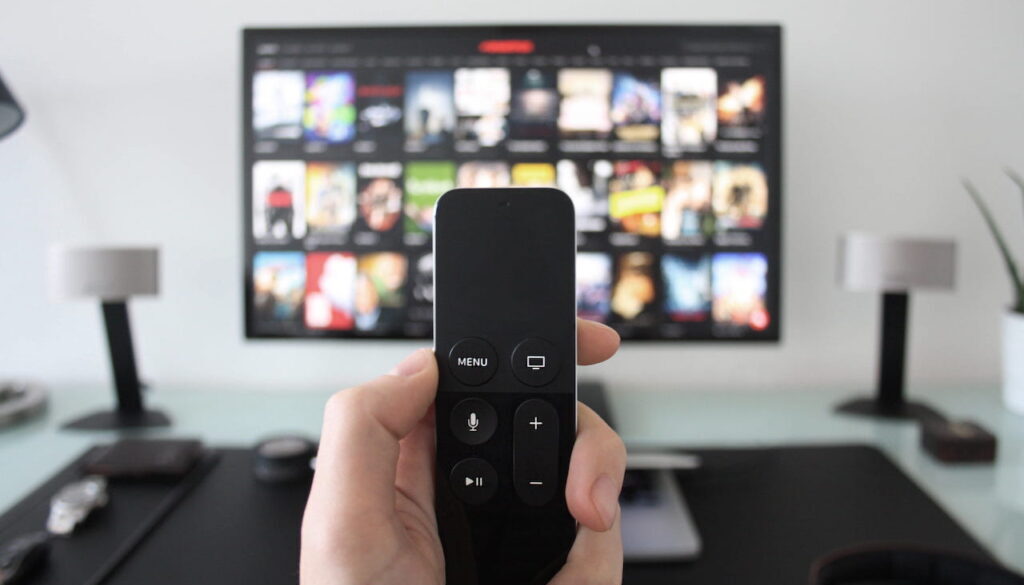Untangling How UK TV Airs Stateside Pt 3
Disclaimer: I don’t work for any studios, networks or streaming companies, I work in the US media outside fandom and review TV shows. I’m a diehard fan who has spent years tracking this issue and can detect patterns. This series does NOT go into detail about movie licensing which is a separate issue. If you are a current or former employee of a studio, network, or streaming service and see a pressing error that you can correct without getting in trouble, please email me at info [at] amandarareprescott dot com to get in touch.
If you haven’t yet, read Part 1 and Part 2 in this series. Note that some information from 2021 has not been edited to reflect recent industry changes.
A lot has changed in the streaming world since I first started trying to explain how UK imports to the US work. The BBC announced they are doing away with the license fee and eliminating part of their channel lineup. Warner Brothers/HBO is now merging with Discovery and canceled the coproduced with BBC queer period drama Gentleman Jack. UK BritBox and ITV Hub are being rebranded into ITVX as BBC sold all of its UK shares. (US BritBox will remain the same). Spectrum Originals started out by grabbing some UK shows then closed down when they realized their competitors had them cornered. The patterns are not as predictable as they were before but there are still trends as to which genres/areas of interest US networks/streamers tend to prefer when they select new UK TV series to feature:
Masterpiece PBS The Masterpiece brand is over 50 years old and going strong despite heavy competition from the streamers. Masterpiece prefers the high-brow and prestige but lower budget literary adaptations, period dramas, mysteries, and contemporary dramas targeted at viewers 40 years old and up. Since Masterpiece still relies heavily on broadcast ratings for profit, they cannot air series with a lot of nudity, strong language, or violence that can’t easily be edited to FCC standards. Their budget for co-productions and licenses is very limited as well. Masterpiece tends to get mostly BBC and ITV dramas but with Channel 5’s success with All Creatures Great & Small there are possibilities for more partnerships in the future.
PBS Distribution/American Public Television Not every UK show sold to PBS gets the special Masterpiece label. PBS stations can individually license UK TV shows to air outside the mandatory Masterpiece block. These shows are usually: a) UK period, procedural or contemporary dramas with higher content ratings than what typically airs on the Masterpiece label. b) highbrow European crime and contemporary dramas curated by British streamer Walter Presents. c) syndicated repeats/second releases of UK dramas that were on other US networks or streamers as PBS couldn’t afford first run rights. This is why Broadchurch aired on BBC America a few years ago is now streaming on PBS Passport for example.
BritBox US BritBox is also largely targeted at the 40+ Anglophile audience like PBS is but the main difference is that there’s no need to edit out cursing. BritBox these days tends to attract the police-focused crime dramas, the newer Agatha Christie UK miniseries adaptations, some “ripped from the headlines” true crime dramas, and less often contemporary comedies and dramas. BritBox also streams live UK events such as Trooping the Color and occasional other shows. In addition, BritBox also regularly makes available classic BBC/ITV series that either was previously unavailable on streaming or in some cases never released in the US.
AcornTV: AcornTV has a mix of licensed TV and coproduced shows. Acorn is also targeted at 40+ Anglophiles but has heavily focused on crime/procedural dramas in the past few years. You’re more likely to see series from all the UK broadcast networks produced in Wales, Northern Ireland and Scotland on Acorn. They also have shows from Channel 4 and Channel 5. Acorn has picked up a few period dramas such as The Larkins and A Suitable Boy which were clearly passed on by PBS but these newer period dramas are outweighed by the archive of period dramas made by Granada. (ITV brought out Granada in the 90’s). Acorn also has a lot of series imported from Ireland, Australia, New Zealand, and sometimes Canada as well.
Sundance Now Sundance’s brand relies on the indie and arthouse vibe. They lean heavily towards contemporary dramas, dramedies, psychological dramas, and thriller/action series. Sundance focuses more on new UK indie releases such as The Pact versus adding older series to their catalog. Their emphasis on contemporary means Sundance is targeted to Anglophiles in the 25-39 demographic, unlike Acorn/BritBox. Sundance also has a fair share of European arthouse content, particularly Scandinoir shows such as Stella Blonkvist.
AMC+ The brand combines Acorn and Sundance’s catalog with AMC’s US drama catalog. The AMC+ branding is usually reserved for the UK co-productions with the biggest budget and A-list cast such as The Beast Must Die, This Is Going To Hurt, and more. These co-productions are often a mix of contemporary drama, sometimes crime/thriller, and true crime series. Sometimes AMC+ will add series to Acorn and Sundance Now solo subscribers simultaneously or a few weeks after the initial premiere if they believe the show will do well. For example, Ten Percent, (the UK remake of the French series Call My Agent!) about actors’ agents was also added to Sundance Now. AMC+ because it carries a wide variety of US-focused content has a more generalized target audience of 18-49 years old.
Hulu Primarily features big-budget, award-contending prestige drama co-productions with the BBC such as Normal People. There are older UK series in the archives but it’s likely Hulu may lose some of these series to BritBox and others when those older license agreements expire. Sometimes FX on cable streams these UK co-productions while others are only on Hulu. So far these co-productions generally tend to be contemporary dramas or occasionally darker period dramas such as Black Narcissus.
HBO Max Until the recent merger with Discovery fiasco, HBO was a reliable co-production partner with the BBC for elaborate period dramas, popular comedies, science fiction, and award-winning contemporary dramas. HBO also was the main US source for Sky-produced dramas and edgy contemporary comedies which rarely show up elsewhere. HBO Max also became the streaming home for several indie comedies from BBC Three and Channel 4. It’s hard to tell whether HBO will continue to partner with the BBC and other UK networks after their existing contracts are complete.
Prime Video Amazon took a bit of a hit after ITV shifted some of their original programming towards UK BritBox/ITVX. In the past year, the majority of Prime Originals from the UK were mid to large-budget co-productions with the BBC. These productions are split between prestige period drama miniseries such as the A Very English scandal anthology and The Pursuit of Love and series aimed at younger audiences such as The Outlaws and Chloe. Amazon will likely benefit from HBO Max temporarily halting UK co-productions as they have plenty of cash to secure A-list talent.
Peacock Their strategy toward UK TV imports is a little fuzzy but so far their choices can be described in four broad categories: a) crime thrillers, especially from Line of Duty’s production company World Productions b) Black/POC-focused series such as We Are Lady Parts and Noughts + Crosses and c) programs produced by their UK affiliated studios. Some of these series are coproductions while others are licensed. Peacock will likely stand to gain a lot from HBO’s issues as they already have a partnership with Sky for airing UK sports games in the US which could easily be extended to importing dramas.
Disney+ Only recently did they enter the UK partnership game and their strategy is centered around making original series aimed toward families, teens, and young adults from UK screenwriters. They are not interested in licensed TV programming although they can add UK movies to their lineup.
Paramount + So far Paramount+ has announced one drama miniseries collaboration with the BBC so it’s hard to tell where that will go. Paramount/CBS/Viacom has a lot of reality TV investments with the UK but has the potential to expand into scripted television more as they have shares in Channel 5. They too are likely to benefit from HBO’s problems.
Showtime In the 2000s and 2010s, Showtime directly competed with HBO for the big budget A list UK miniseries but they have pulled back in recent years. HBO’s issues are likely why they’ve slowly restarted collaborations with the BBC again.
I don’t want to give away all of my little tricks of the trade but generally, if a new UK TV show has a US streamer/network in the press release headline, that means it’s a co-production. Sometimes US distributors will be mentioned in the international distribution section, If there is no mention, that means the US license will be up for grabs after UK airing.

